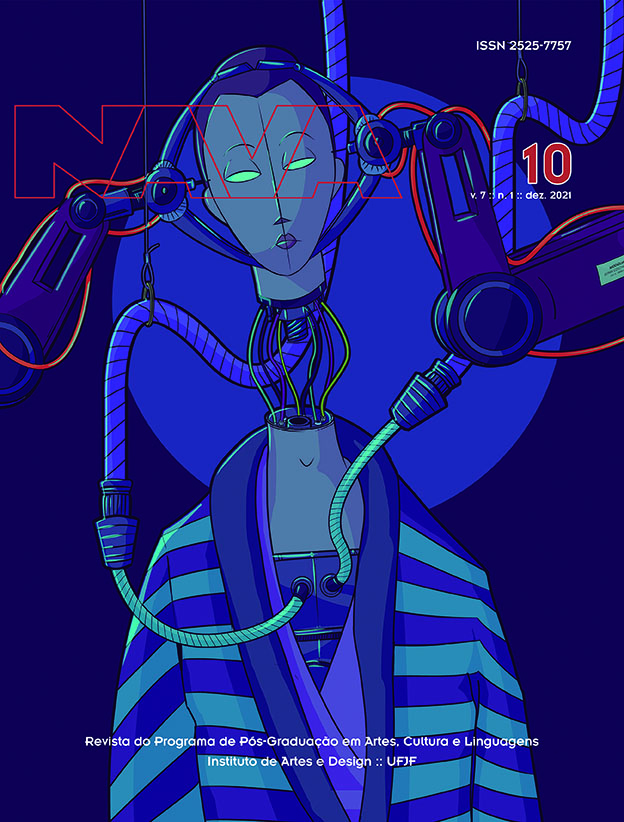Brasilândia não é Disneylândia
Negra Li, fábula e hiper-realidade
DOI:
https://doi.org/10.34019/2525-7757.2021.v7.33608Palavras-chave:
rap brasileiro, modernidade tardia, favela, audiovisual brasileiroResumo
Através de um debate entre os conceitos de “fábula” e “hiper-realidade” – defendidos por Milton Santos (2001) e Jean Baudrillard (1991) para dar conta de perdas e hegemonias observadas na contemporaneidade –, o artigo analisa duas canções da rapper paulistana Negra Li: “Olha o menino”, de 2004, e “Brasilândia”, de 2019, bem como o videoclipe desta última. O olhar criativo e em primeira pessoa da mulher negra sobre a periferia que a projetou ao mundo traz um exame essencial aos modelos de ascensão social e autenticidade vividos na modernidade tardia. O artigo sustenta que, ao atravessar mais de uma década, o assertivo verso “Brasilândia não é Disneylândia” é poderoso recurso para alinhavar as críticas da representação da favela, forjada também pelo audiovisual brasileiro, com a de um mundo calcado em meras simulações do real.
Downloads
Downloads
Publicado
Edição
Seção
Licença
Copyright (c) 2021 Eduardo Prado Cardoso

Este trabalho está licenciado sob uma licença Creative Commons Attribution 4.0 International License.
A Revista Nava adota a licença Creative Commons CC-BY.
Nossa política de direitos autorais garante aos autores a possibilidade de adaptar e partilhar o conteúdo publicado.
Os autores se mantém como detentores do copyright de seus trabalhos após a publicação.






